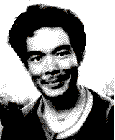|
Melody in Prison: Ngawang Choephel |
||
 |
UPDATE 11 February 1997 |
All six members of the Daschle delegation, which visited China in November 1996, have signed a letter to Vice President Albert Gore requesting that he champion Ngawang's case when he visits China this spring. The letter was not made public until 10 March 1997, Tibetan National Uprising Day, when Senator Patrick Leahy inserted it into the Congressional Record.
U.S. Senate Washington, DC February 11, 1997Hon. Albert Gore
The White House
Washington, DC
Dear Mr. Vice President:
We learned recently that you plan to visit China this spring. We were in Beijing in November, where we met with President Jiang Zemin. Among the issues Senator Leahy raised with the President was the case of a Tibetan named Ngawang Choephel, a former Fulbright scholar at Middlebury College in Vermont where he studied and taught enthnomusicology. When he returned to Tibet in 1995 to make a video about transitional music and dance, he was detained on charges of spying and held incommunicado for 15 months. Last month, after a secret trial, he was sentenced to 18 years in prison.
Mr. Choephel sent many hours of video footage to India before he was detained, which we understand deals only with traditional music and dance. Other than referring to an alleged "confession,'' the Chinese have never produced any evidence to support the charge that Mr. Choephel engaged in espionage on behalf of the United States or anyone else. The State Department has urged the Chinese to release him. We believe the Chinese government has made a tragic mistake. Over forty Members of Congress have signed letters to President Jiang and the Chinese Ambassador calling for Mr. Choepel's release. We urge you to stress the administration's view that Mr. Choephel should be released, and to ask President Jiang to personally look into this case.
Sincerely yours,
Patrick Leahy
Thomas A. Daschle
Dianne Feinstein
John Glenn
Byron L. Dorgan
Dirk Kempthorne